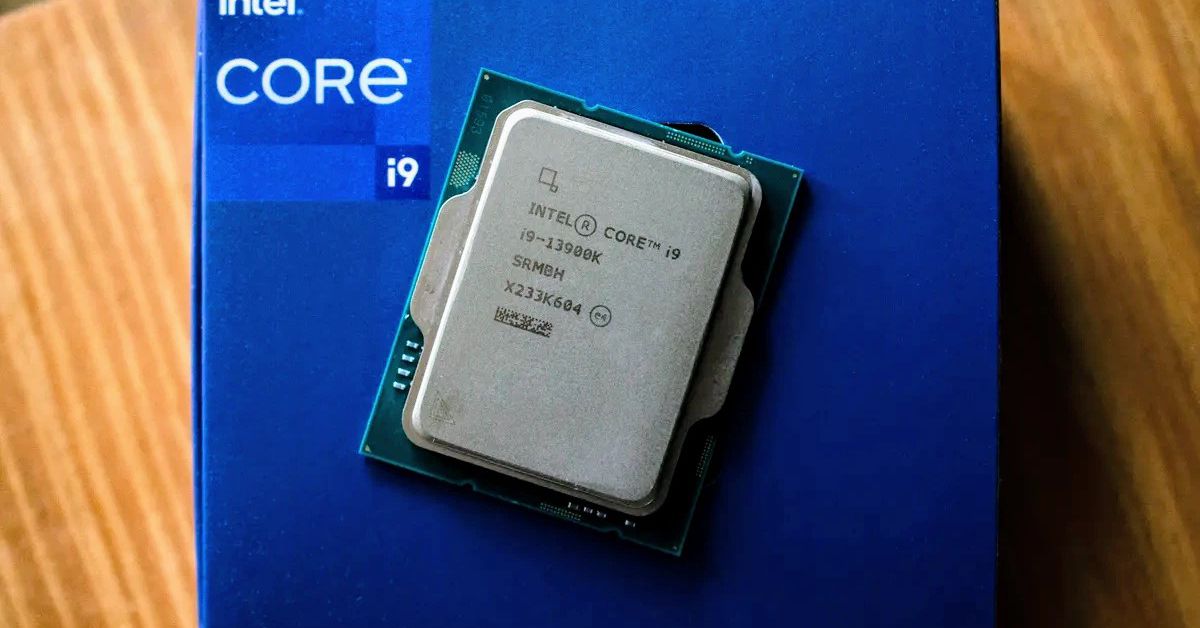Intel has not halted sales or clawed back any inventory. It will not do a recall, period.
Buy AMD. Got it!
I’ve been buying AMD for – holy shit – 25 years now, and have never once regretted it. I don’t consider myself a fanboi; I just (a) prefer having the best performance-per-dollar rather than best performance outright, and (b) like rooting for the underdog.
But if Intel keeps fucking up like this, I might have to switch on grounds of (b)!
spoiler
(Realistically I’d be more likely to switch to ARM or even RISCV, though. Even if Intel became an underdog, my memory of their anti-competitive and anti-consumer bad behavior remains long.)
deleted by creator
ARM looking pretty good too these days
arm is very primed to take a lot of market share of server market from intel. Amazon is already very committed on making their graviton arm cpu their main cpu, which they own a huge lion share of the server market on alone.
for consumers, arm adoption is fully reliant on the respective operating systems and compatibility to get ironed out.
Linux works great on ARM, I just want something similar to most mini-ITX boards (4x SATA, 2x mini-PCIe, and RAM slots), and I’ll convert my DIY NAS to ARM. But there just isn’t anything between RAM-limited SBCs and datacenter ARM boards.
Arm servers are slow, and arm laptops are not compatible with Linux.
Eh, it looks like ARM laptops are coming along. I give it a year or so for the process to be smooth.
For servers, AWS Graviton seems to be pretty solid. I honestly don’t need top performance and could probably get away with a Quartz64 SBC, I just don’t want to worry about RAM and would really like 16GB. I just need to server a dozen or so docker containers with really low load, and I want to do that with as little power as I can get away with for minimum noise. It doesn’t need to transcode or anything.
Man so many SBCs come so close to what you’re looking for but no one has that level of I/O. I was just looking at the ZimaBlade / ZimaBoard and they don’t quite get there either: 2 x SATA and a PCIe 2.0 x4. ZimaBlade has Thunderbolt 4, maybe you can squeeze a few more drives in there with a separate power supply? Seems mildly annoying but on the other hand, their SBCs only draw like 10 watts.
Not sure what your application is but if you’re open to clustering them that could be an option.
Here’s my actual requirements:
- 2 boot drives in mirror - m.2 or SATA is fine
- 4 NAS HDD drives - will be SATA, but could use PCIe expansion; currently have 2 8TB 3.5" HDDs, want flexibility to add 2x more
- minimum CPU performance - was fine on my Phenom II x4, so not a high bar, but the Phenom II x4 has better single core than ZimaBlade
Services:
- I/O heavy - Jellyfin (no live transcoding), Collabora (and NextCloud/ownCloud), samba, etc
- CPU heavy - CI/CD for Rust projects (relatively infrequent and not a hard req), gaming servers (Minecraft for now), speech processing (maybe? Looking to build Alexa alt)
- others - actual budget, vault warden, Home Assistant
The ZimaBlade is probably good enough (would need to figure out SATA power), I’ll have to look at some performance numbers. I’m a little worried since it seems to be worse than my old Phenom II x4, which was the old CPU for this machine. I’m currently using my old Ryzen 1700, but I’d be fine downgrading a bit if it meant significantly lower power usage. I’d really like to put this under my bed, and it needs to be very quiet to do that.
Yeah, I manage the infrastructure for almost 150 WordPress sites, and I moved them all to ARM servers a while ago, because they’re 10% or 20% cheaper on AWS.
Websites are rarely bottlenecked by the CPU, so that power efficiency is very significant.
I really think that most people who think that they want ARM machines are wrong, at least given the state of things in 2024. Like, maybe you use Linux…but do you want to run x86 Windows binary-only games? Even if you can get 'em running, you’ve lost the power efficiency. What’s hardware support like? Do you want to be able to buy other components? If you like stuff like that Framework laptop, which seems popular on here, an SoC is heading in the opposite direction of that – an all-in-one, non-expandable manufacturer-specified system.
But yours is a legit application. A non-CPU-constrained datacenter application running open-source software compiled against ARM, where someone else has validated that the hardware is all good for the OS.
I would not go ARM for a desktop or laptop as things stand, though.
If you didn’t want to game on your laptop, would an ARM device not be better for office work? Considering they’re quiet and their battery lasts forever.
ARM chips aren’t better at power efficiency compared to x84 above 10 or 15W or so. Apple is getting a lot out of them because TSMC 3nm; even the upcoming AMD 9000 series will only be on TSMC 4nm.
ARM is great for having more than one competent company in the market, though.
ARM chips aren’t better at power efficiency compared to x84 above 10 or 15W or so.
Do you have a source for that? It seems a bit hard to believe.
I have a 13 series chip, it had some reproducible crashing issues that so far have subsided by downclocking it. It is in the window they’ve shared for the oxidation issue. At this point there’s no reliable way of knowing to what degree I’m affected, by what type of issue, whether I should wait for the upcoming patch or reach out to see if they’ll replace it.
I am not happy about it.
Obviously next time I’d go AMD, just on principle, but this isn’t the 90s anymore. I could do a drop-in replacement to another Intel chip, but switching platforms is a very expensive move these days. This isn’t just a bad CPU issue, this could lead to having to swap out two multi-hundred dollar componenet, at least on what should have been a solidly future-proof setup for at least five or six years.
I am VERY not happy about it.
switching platforms is a very expensive move these days.
It’s just a motherboard and a cpu. Everything else is cross compatible, likely even your cpu cooler. If you just buy another intel chip… it’s just gonna oxidize again.
$370 for a 7800x3d https://www.microcenter.com/product/674503/amd-ryzen-7-7800x3d-raphael-am5-42ghz-8-core-boxed-processor-heatsink-not-included
~$200 for a motherboard.
Personally i’d wait for the next release to drop in a month… or until your system crashes aren’t bearable / it’s worth making the change. I just don’t see the cost as prohibitive, it’s about on par with all the alternatives. Plus you could sell your old motherboard for something.
It’s just nearly $600. Practically free.
I have an Intel Core i9-14900K 3.2 GHz 24-Core LGA 1700 Processor purchased in March. Is there any guesses for the window yet of potential affected CPUs?
You’re in it. Get those bios updates and look into undervolting your CPU ASAP.
So the bios update wouldn’t already put my chip within safer operating parameters? I also have to undervolt it?
It will put it into “safe” parameters, but I mean you should give it an additional undervolt to increase its longevity.
I mostly worry about future performance being undervolted too much, since I sometimes do heavy animation work.
Yeah Intel really needs to recall these things. This shit isn’t right.
Any real world comparison. Gaming frame rate, video encoding… The 13-700 beats the 7900x while being more energy efficient and costing less.
That’s even giving AMD a handicap in the comparison since the 7700x is supposed to be the direct comparison to the 13-700.
I say all this as a longggg time AMD CPU customer. I had planned on buying their CPU before multiple different sources of comparison steered me away this time.
Ok, so maybe you are missing the part where the 13 and 14 gens are destroying themselves. No one really cares if you use AMD or what not, this little issue is intel and makes any performance,power use or cost moot as the cpu’s ability to not hurt itself in its confusion will now always be in question.
Also I don’t think CPU speeds have been a large bottleneck in the last few years, why both AMD and Intel keep pushing is just silly.
This would be funny if it happened to Nvidia.
Hope Intel recovers from this. Imagine if Nvidia was the only consumer hardware manufacturer…
No one wants that.
This would be funny if it happened to Nvidia.
Hope Intel recovers from this. Imagine if Nvidia was the only consumer hardware manufacturer…
Lol there was a reason Xbox 360s had a whopping 54% failure rate and every OEM was getting sued in the late 2000s for chip defects.
Isn’t the 360’s failure rate due to MS rushing to release it before the PS3?
No, it was entirely Nvidias fault
I think the 360 failed for the same reason lots of early/mid 2000s PCs failed. They had issues with chips lifting due to the move away from leaded solder. Over time the formulas improved and we don’t see that as much anymore. At least that’s the way I recall it.
AFAIK the cooling was faulty or insufficient which burned the chips out.
Tagging on here: Both the first model PS3 and Xbox 360 were hot boxes with insufficient cooling. Both suffered from getting too hot too fast for their cooling solutions to keep up. Resulting in hardware stress that caused the chips solder points to weaken until they eventually cracked.
Owner of original 60gb PS3 here.
It got very hot and eventually stopped working. It was under warranty and I got an 80gb replacement for $200 cheaper, but lost out on backwards compatibility which really sucked because I sold my PS2 to get a PS3.
The other day, when this news hit for the first time, I bought two ITM Put options on INTC. Then, I waited three days and sold them for 200% profit. Then, I used the profit to invest in the SOXX etf. Feels good to finally get some profit from INTC’s incompetence.
edit: haters of gambling with the downvotes?
Don’t worry. I’m sure the $10 Doordash card is coming to an inbox near you!
Aaaaaand it’s been cancelled by the issuing party.
Thanks, Crowdstrike.
Thanks, Obama.
Is there really still such a market for Intel CPUs? I do not understand that AMDs Zen is so much better and is the superior technology since almost a decade now.
Intel is in the precarious position of being the largest surviving American owned semiconductor manufacturer, with the competition either existing abroad (TSMC, Samsung, ASML) or as a partner/subsidiary of a foreign national firm (NVidia simply procures its chips from TSMC, GlobalFoundries was bought up by the UAE sovereign wealth fund, etc).
Consequently, whenever the US dumps a giant bucket of money into the domestic semiconductor industry, Intel is there to clean up whether or not their technology actually works.













